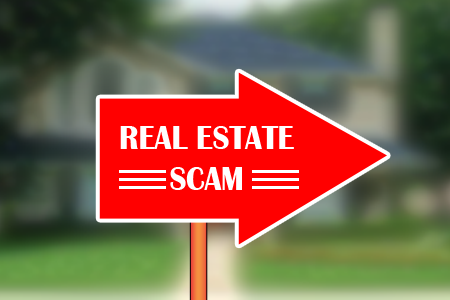The real estate market has always been an attractive target for scammers and fraudsters looking to make a quick buck at the expense of unsuspecting buyers and sellers. With the rise of online platforms and the increasing reliance on digital transactions, it has become more important than ever to be vigilant and protect yourself from real estate scams and fraud.
Research and Due Diligence
One of the key ways to avoid falling victim to real estate scams is to conduct thorough research and due diligence. Before entering into any real estate transaction, make sure to research the property, the seller, and the real estate agent or broker involved. Verify the authenticity of the property’s ownership documents and cross-reference them with public records. This will help ensure that you are dealing with legitimate individuals and properties.
When researching a property, be wary of any red flags such as extremely low prices, unrealistic rental yields, or sellers who rush the transaction and pressure you into making quick decisions. Scammers often use these tactics to lure unsuspecting buyers into their scams.
Work with Licensed Professionals
Another effective way to protect yourself from real estate scams is to work exclusively with licensed real estate professionals. Whether you are buying or selling a property, it is crucial to choose trustworthy and reliable real estate agents or brokers who are qualified and licensed by the appropriate regulatory authorities.
Verify the credentials of any real estate professional you plan to work with. Check if they are a member of reputable real estate organizations or associations. These affiliations provide an added layer of accountability and professionalism.
Never Wire Money or Share Personal Information
Be extremely cautious when it comes to sharing personal information or transferring money during a real estate transaction. Scammers often request wire transfers, especially when dealing with international real estate transactions. Never wire money to an unknown party or provide your personal bank account information without verifying the recipient’s identity and authenticity.
When making a payment, consider using secure payment methods such as escrow services to ensure your funds are protected. Escrow services hold the funds in a secure account until all the terms of the sale have been met, offering both parties peace of mind.
Visit the Property in Person
It is always recommended to visit a property in person before finalizing any real estate transaction. This allows you to physically inspect the property, ensure its condition aligns with the description provided, and confirm that the property actually exists.
If a seller is unwilling to let you visit the property or insists on conducting the transaction entirely online without any physical interaction, consider it a major red flag. Scammers often use fake listings and online platforms to convince buyers to wire money or share personal information without ever seeing the property.
Be Skeptical of Unusual Requests
During the course of a real estate transaction, be wary of any unusual requests or demands from the other party. Scammers may ask for upfront fees, request access to personal financial information, or suggest unconventional payment methods. If anything feels out of the ordinary or too good to be true, trust your instincts and proceed with caution.
If you suspect you have encountered a real estate scam or fraud, report it to the appropriate authorities immediately. Timely reporting can help prevent others from falling victim to the same scam and increase the chances of catching the culprits.
Conclusion
While real estate scams and fraud can be unsettling, arming yourself with knowledge and taking necessary precautions can help you avoid becoming a victim. Conduct thorough research, work with licensed professionals, be cautious with your personal information and payments, visit properties in person, and always trust your instincts. By following these guidelines, you can protect yourself and make informed decisions in the real estate market.
